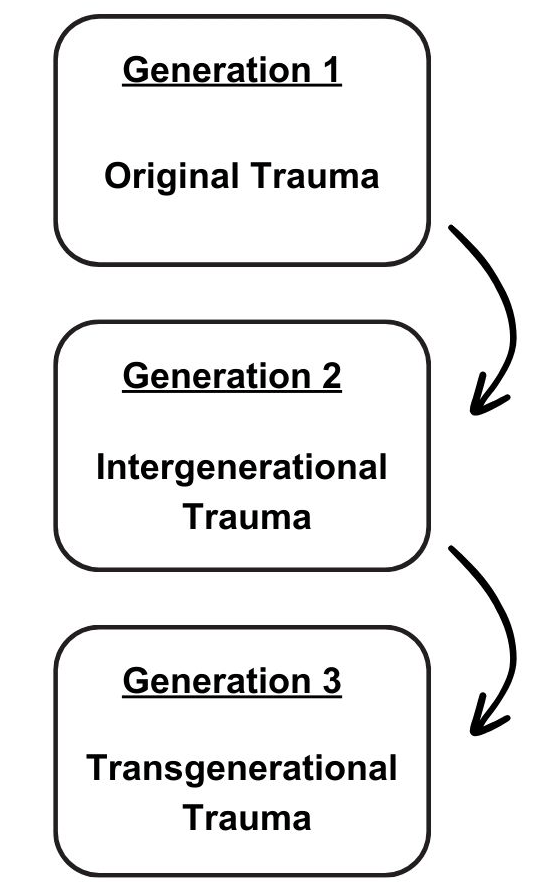Intergenerational Trauma
Tiffany Ha
Counsellor & Gestalt Psychotherapist
Perth, Western Australia
Some people experience symptoms of stress-related disorders without knowing why. These can show up as:
- depressive moods
- addiction
- aggression and self-destructive behaviours
- relationship difficulties
- low self-esteem
- feeling constantly 'on edge'
While people experience these symptoms in a very real way, they often do not understand why they are happening because they cannot trace them back to a specific cause. This can lead to confusion, denial, guilt, minimisation of one's own feelings, and a belief that "there must be something wrong with me".
Trauma responses are not always caused by big events that happen to us directly. Your trauma response may have roots in the traumatic experiences of your parents, grandparents, great-grandparents and ancestors. If there is a history of trauma in your family, then it is likely that you have inherited some of the effects of that trauma. Some common causes of traumatic stress disorders (such as PTSD and C-PTSD) include:
- domestic violence
- sexual abuse or assault
- serious accidents
- warfare
- bullying and hate crimes
- traumatic childbirth or loss of a child
- vicarious trauma (witnessing other people's traumas)
When traumatised parents (or caregivers) pass on the effects of trauma to their children, the
children experience intergenerational trauma. Transgenerational trauma refers to passing on of
trauma onto the following generation – when the grown children pass it on to their children (the
grandchildren of the originally traumatised generation). If trauma is not addressed, this cycle can
repeat for many generations to come (see the diagram).

Parents with unresolved trauma are often impaired in their ability to parent and form secure attachments with their children. This negatively impacts a child's development. Unresolved trauma that is passed on can become more severe in successive generations.
Historical trauma is experienced by cultural groups who have survived devastating circumstances such as genocide, colonisation, dispossession, institutionalisation, systemic poverty and forced migration. Some examples of historically traumatised groups include:
- First Nations people of Australia
- African-Americans
- Holocaust survivors and their descendants
- Indigenous people of North America
- The disability community
Historical trauma is particularly devastating because it erodes identity on an individual and cultural level. People who come from communities that have experienced historical trauma are less likely to seek help from institutions or government services because they do not trust that the systems will support them.
Collective trauma refers to the psychological effects of a traumatic event experienced by an entire community or society. The event is remembered, discussed and reconstructed collectively in order to make meaning of it. Significant events such as natural disasters, terrorist attacks, famines and pandemics can leave a long-lasting impression on the collective psyche. Refugees and immigrants also experience collective trauma which can significantly impact their cultural identity.
Many people are unaware of generational transmission of trauma because family members do not talk about what happened; they cannot bear to remember – let alone speak about – their traumatic experiences. People often carry a lot of shame and guilt around being a victim/survivor. As a survival defence, they may deny, suppress or 'cut off' from their experience. In doing so, they are unable to heal or grow; they remain stuck in old, unhelpful patterns, and they struggle to connect meaningfully with others.
Healing from transgenerational trauma is a long but rewarding journey that involves a lot of examination, investigation and self-compassion. With the help of your therapist, you will be encouraged to access parts of yourself that have been suppressed or forgotten. Once you begin to integrate and heal from intergenerational trauma, you will gain a much greater capacity for self-growth and healthy relationships.
Contact Tiffany if you would like further information, assessment or to discuss treatment options.
Tiffany Ha
Counsellor
Gestalt Psychotherapist
Phone: 0401 978 003
Email: [email protected]
Mount Lawley Counselling Centre
13 Alvan Street
Mt Lawley (Perth), WA 6050

